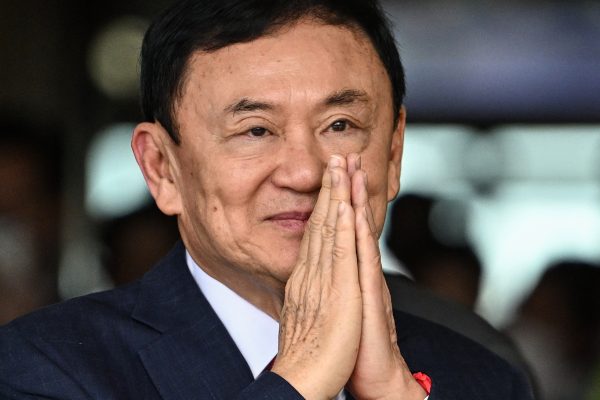Will Prayut return as PM? Ball in Constitutional Court

All eyes across Thailand will be on the Constitutional Court on Friday (September 30), when it is scheduled to rule on whether General Prayut Chan-o-cha has completed eight years as prime minister.
Speculation and conspiracy theories have been rife for the past month, from the time the court accepted the opposition’s petition on August 24 and suspended Prayut from performing his duties as PM, pending its ruling.
The opposition petition asked the court for a ruling on whether Prayut had reached the eight-year term limit fixed by the Constitution for prime minister, arguing that he had begun serving in the position on August 24, 2014, following the military coup that he had led three months earlier.
What the Constitution says
Unlike all the previous editions, the current Thai charter clearly stipulates the maximum time an individual can serve as PM.
Article 158 states: “The prime minister shall not hold office for more than eight years in total, whether or not consecutively. However, this shall not include the period during which the prime minister carries out duties after vacating the office.”
When to start counting?
There are three possible starting points to count Prayut’s term as prime minister:
— August 24, 2014, when Prayut first assumed the premiership following the coup that he led in May that year;
— April 6, 2017, when the current Constitution came into force;
— June 9, 2019, when Prayut assumed the premiership following the general election in March that year.
The parliamentary opposition and Prayut’s critics make a strong case for counting his tenure from August 24, arguing that the constitutional clause in question is designed in principle to prevent a “monopoly of power”. For them, what matters is the spirit of the Constitution, whose unprecedented provision is intended to prevent any prime minister from entrenching himself or herself in power.
Opponents of the August 24 deadline believe the eight-year limit cannot have a retroactive effect. They argue that his tenure should be counted from the time the current charter came into force – which means Prayut can serve for another term as prime minister until April 2025, if his party wins the elections.
Only the most ardent of Prayut’s supporters believe the tenure should be counted from June 2019, when he was sworn in as prime minister under the new Constitution after being selected by Parliament and appointed by royal command. They believe he could serve until mid-2027 as the country’s leader if he wins a fresh mandate in the general election tentatively scheduled for May 7.
Thailand sets May 7, 2023 as the tentative date of next general election
What are the possible rulings?
The Constitutional Court’s nine judges are poised to issue a joint verdict on Prayut’s tenure as PM. There are three possible scenarios.
If the court rules that his term began when he first assumed the premiership in August 2014, after the coup, Prayut would immediately lose his PM seat.
Both Houses of Parliament would then vote for a new prime minister from the list of PM candidates in the 2019 election. That list featured five candidates other than Prayut – Anutin Charnvirakul and Abhisit Vejjajiva from the coalition’s Bhumjaithai and Democrat parties, respectively, and Chaikasem Nitisiri, Chadchart Sittipunt and Sudarat Keyuraphan from the opposition Pheu Thai Party.
The ruling Palang Pracharath Party would not have a candidate as Prayut was its only nominee for PM.
However, if the court rules that Prayut’s tenure began when the current Constitution came into force in April 2017, then he can serve for two more years after completion of his current term in 2023.
But if the court rules that Prayut’s tenure should be counted from the time he was sworn in as PM in June 2019, under the new Constitution, then he can have five more years in office if re-elected.
Some analysts have pointed out that unless the court rules Prayut has completed his eight-year tenure, its verdict is unlikely to state when he would be completing his maximum period in office as the opposition’s petition did not ask this question.
The Constitutional Court has often rejected petitions it found to be filed premature before the legal question arose. So, petitioners are forced to wait until the time approaches before taking their case to court. The opposition waited until August 17 to submit its petition to House Speaker Chuan Leekpai, who forwarded it to the court on August 22.
If Prayut can stay on and serve for another term after the election, petitioners will have to wait until the next possible deadline before bringing their case to court again, political observers say.
Somkid Jatusripitak: From economic wizard to Thailand’s next PM?
What happens if Prayut has to go?
If the court rules that Prayut’s term expired on August 24, he will have to vacate his seat and his Cabinet would serve as a caretaker government until Parliament chooses a new prime minister, according to Deputy Prime Minister Wissanu Krea-ngam, who is in charge of the government’s legal affairs.
General Prawit Wongsuwan, the first deputy prime minister, who is now serving as acting prime minister, would serve as the caretaker PM.
The law, however, does not prohibit Prayut from serving as a caretaker PM during the process of selecting his successor. But many analysts believe that to be an unlikely scenario.
By Thai PBS World’s Political Desk






